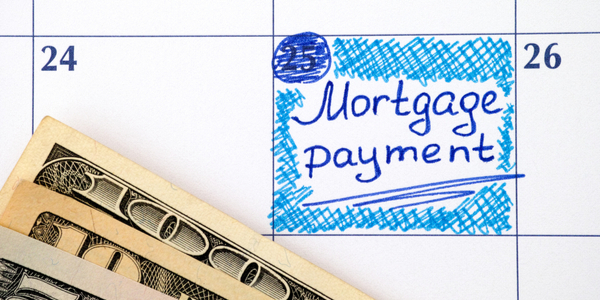
It takes hard work to save enough money and build your credit to buy your home. As a homeowner, you will need to make your mortgage payments in full and on time every month. Let’s face it, you made a financial commitment to your lender/ finance institution to pay on time and in full each month.
You are better off paying your mortgage on time plus add a little extra each month, than wasting it on foolish things. Unlike rent, due on the first of the month, mortgages are paid in arrears. On the first of the month but for the previous month, for example, if you close January 25 you will pay interest from the closing to the end of the month, and your full payment begins March 1.
Read More: Houston Hard Money Lenders Advice for First Time Home Buyers
If your payment is late, you may be charged a late fee- one that can be potentially hundreds of dollars, missing 3 or more monthly payments can prompt default and can have a significant negative impact on your credit score. Financial institutions use credit scores and your payment history to predict how risky a borrower will be. The lower your score indicates that you are more likely to pay late and become a collection problem and the creditor is more likely to lose their investment by lending you the money.
There are two options on the table when it comes to purchasing a house. The first option is to pay in cash, and the other is to take up a mortgage loan.
A mortgage loan is a way to make a real estate purchase without paying the price upfront. These loans are also known as claims on property and liens against the property. A homeowner has to make fixed monthly payments until they get free and clear ownership of the property. If a homeowner fails to repay the loan, the financial institute or private lender, takes the property and becomes the new owner.
Choosing Mortgage Over Cash Payment
A lot of people struggle with the question about whether to pay for a house in cash or go for a mortgage. According to experts, paying for a real estate property with cash is not very smart. Yes, a house is important, but there are other expenses that you need to take care of before investing your entire savings on the purchase of a house.
Taking a mortgage is a wiser decision because you keep liquidity and maximize the returns. A real estate purchase is illiquid, and it is not smart to invest all your savings on something illiquid in nature. If any serious event, or your situation takes a wrong turn, you will have to sell off your property, since you used all your money to pay for it.
Returns on investments in real estate property are 3% to 4% per year; while it is higher for other forms of investments, such as bonds and stocks. So, if you invest all your savings on a real estate purchase, you will get a low return. Therefore, it is smart to choose a mortgage loan and invest the money saved in a place that can bring higher returns.
Read More: Home Inspections FAQ’s for First Time Buyers and Sellers
Importance of Paying Mortgage on Time
Often, homeowners who choose private lenders for mortgage loans take the repayment lightly, as private lenders are much more lenient than banking institutions. That is not a good idea. People who choose to get a mortgage should make payment a priority in order to keep their credit score healthy. No matter how many other debts you have, focus first on repaying the mortgage. You are making a commitment to your lender of paying the loan on time, and adhering to that commitment will help your credit score. Even though there is no minimum credit score required when applying for a mortgage loan, maintaining a good score is crucial to your financial record now and in the future.
It may be true that defaulting on payment for 30 or 60 days does not have a significant impact on your credit score, but if the delay exceeds 90 days, it will create a lot of problems. To begin with, it will greatly reduce your possibilities of getting another mortgage in the future. An even more serious consequence would be that you will probably not get any other kind of loan-be it a car or a boat loan-, since defaulting on your mortgage loan will have a huge impact on your credit score. According to experts, defaulting a mortgage payment by 120 days can lead to a 70-point to 110-point drop in a credit score, and you would not want that. It is huge drop for one single missed payment!
Using Your Mortgage to Improve Credit Score
But, while delays in mortgage payment have a negative impact in your overall credit score, timely mortgage payments can improve your credit score. There are several ways of improving a bad credit score, and prompt mortgage payments are a very important way to boost your credit score.
If you are thinking of ways of improving your credit score, start by getting a Secured Credit Card; this is a card backed by a cash deposit that is equal to your credit limit. These cards are specifically used for building credit, and you get the deposit back, once your score has improved.
As a mortgage is a long-term loan, it plays a pivotal role in improving your credit score. Even though having a consistently good credit score is not necessary, it is important to improve it if it falls. The reason is that it makes up 35% of your credit history and lays the ground for future loans. Therefore, if you wish to improve your credit score and want to buy a house, forget about paying for it in cash and go for a mortgage, which will bring you the additional benefits we discussed.
AMI Lenders – The Most Reliable Mortgage Lenders in Town
Want to improve your credit score and want to take up mortgage instead of paying for the real estate property in cash? Well, AMI Lenders is the perfect place to start. Founded in the year 1990, it has been providing home buyers and investors with an alternative source for financing residential or commercial.



